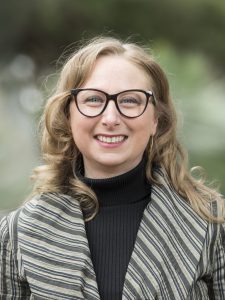
Michelle D. Lazarus, PhD SFHEA
Associate Professor, Department of Anatomy & Developmental Biology, Faculty of Medicine, Nursing & Health Sciences, Monash University, Victoria, Australia
Director, Centre of Human Anatomy Education
Deputy Director, Monash Centre for Scholarship in Health Education
Dates of Visit: April 8 – 11, 2024
Biography
Michelle’s research focuses on understanding how education impacts our workforce’s professional identity, emphasising the role of developing strategies to effectively manage uncertainty. She is a multi-award-winning educator having received the Australian Universities Teaching excellence award as well as the Monash Vice Chancellor’s and Dean’s Award for Teaching Excellence, among others. She supports development and delivery of high-quality medical education in diverse learning contexts both nationally and internationally, working in consultation with secondary school teachers, caregivers, tertiary educators and the clinical workforce. Michelle is primarily a constructivist, and also has antibodies against labels – but acknowledges their role in communication. She is a passionate supporter of the next generation of medical education researchers, and seeks to provide them with opportunities and accolades wherever possible. Michelle’s research approach tends to be focused on bringing diverse teams together to generate novel ways of thinking, understanding, and being within the world. She is the author of the “The Uncertainty Effect: How to Survive and Thrive through the Unexpected”. Her entire career is a journey into uncertainty.
Purpose of Visit
During her visit, Michelle hopes to learn more about the daily running and mission of CHES to understand how medical education research centres of excellence run. Michelle also has the goal of expanding education research networks, and developing key partnerships exploring the diverse impacts of uncertainty, and responses to uncertainty (e.g. uncertainty tolerance), on healthcare workers and systems across different cultures. There are four key areas that Michelle is interested in exploring by building international collaborations and partnerships in the context of healthcare education and practice. These areas include the relationship of uncertainty tolerance with: pedagogical practices; artificial intelligence; diversity, equity and inclusion; sustainability. She hopes that her time here could result in grant funding development and community building.